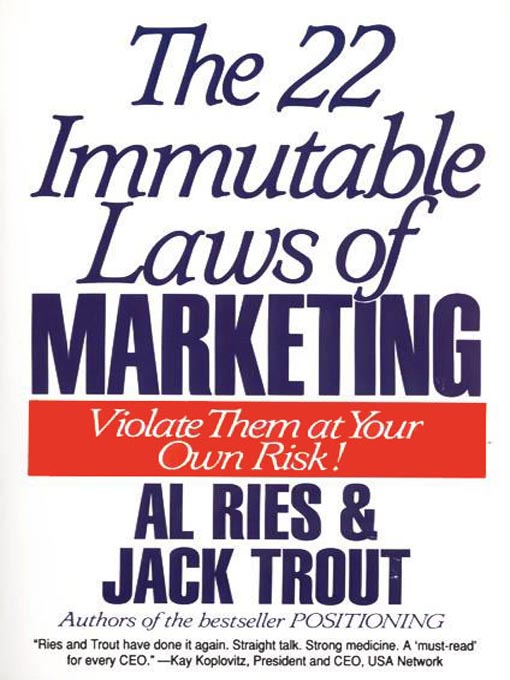Law of Candour

‘When you admit a negative, the prospect will give you a positive.’
Al Ries & Jack Trout from their famous book ‘The 22 Immutable Laws of Marketing’
The Queensland State Election is being held this Saturday with the opinion polls suggesting a landslide victory for the Liberal National Party.
Premier Anna Bligh’s Labor Government has run a relentless campaign focussed on Campbell Newman’s family business dealings. It’s a dangerous strategy and it hasn’t hit its mark after the Crime & Misconduct Commission cleared Mr Newman. It’s dangerous in the sense that personal attacks don’t go down well in the electorate.
In my opinion, she should have applied the law of candour and apologised to the people of Queensland saying ‘we stuffed up, we’ve learnt from our mistakes and we’re going to fix it. I’m putting together a new team to give Queenslanders the kind of government they deserve’.
Political Parties rely too much on Focus Groups.
It’s important to remember that this is the most misused type of research ever developed. Focus Groups tend to give you questions not answers. It’s best used for brainstorming new ideas.
As Eriks Celmins of Third Wave Media says ‘One quote could be seized on because it suits the party strategy. So is the research being used for support or illumination? You also can’t treat focus groups like large sample surveys. You have to apply experienced judgement, and possibly a follow-up survey to quantify the questions they raise'
Politicians can be prevented by their media/PR advisers to do anything as bold as “candour”, for fear of upsetting the polling, and going “off message”.
I strongly suspect that if you tested the Law of Candour with a focus group of mainstream, middle-Australians, they would support it – because they’re sick of being lied to.
Focus groups are never a total free-for-all. The participants respond to the mostly pre-set topics and concepts put to them for discussion, with some more open “anything else?” questions. There are many variables involved, including the profile of the group, and how the question is framed. And if the campaign strategists don’t want candour on the list, it’s possible it won’t emerge as a useable issue’.
What’s all this got to do with radio you might ask?

The law of candour was used very successfully by Jeff Allis (left), Dan Bradley and Grant Tothill when they resurrected 3MMM in the late 90s. They collectively moved to 3MMM when it was arguably at the lowest ebb in the station’s history, after the brand lost its musical identity.
The three of them spent two days holed up in a hotel room building what they called ‘the apology strategy’. This strategy invoked the law of candour to admit a negative, in order to gain a positive.
The ‘apology’ strategy can be best summarised by saying that they went on the air on 3MMM and essentially said to their listeners ‘we got it wrong, we stuffed it up, but we’re back rocking again’.
The results were impressive. 3MMM increased its share from 6% to double figures in only a couple of surveys.
Greg Smith


